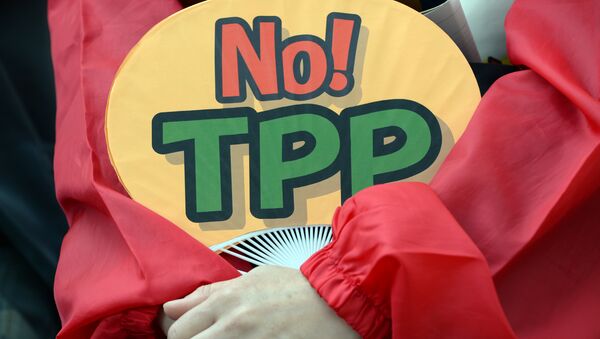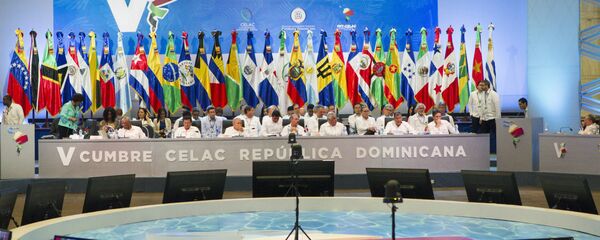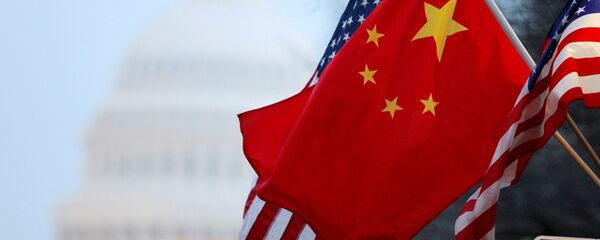Last month Australian Prime Minister Malcolm Turnbull said he had held discussions with Japanese Prime Minister Shinzo Abe, New Zealand Prime Minister Bill English and Singapore Prime Minister Lee Hsien Loong about the possibility of continuing without the US, but with China.
"There is also the opportunity for the TPP to proceed without the United States," Turnbull told reporters in Canberra.
"Certainly there is the potential for China to join the TPP," he added.
However, it is by no means certain that China will want to resurrect TPP, given the existence of alternatives such as the Regional Comprehensive Economic Partnership (RCEP), a free trade agreement currently being negotiated by 16 states in East Asia and Australasia, Chen Fengying of the Chinese Institute of Contemporary International Relations told Sputnik.
"The TPP was not created to China's taste. For China, joining the TPP is not worth it. Perhaps, it won't be able to digest this concept and in the end it will have to spit it out. Other countries have already discussed the conditions of entering into partnership and a lot of these conditions won't be beneficial for China. It's the equivalent of eating something that doesn't suit you and getting indigestion," Fengying said.
"China would be better off developing confidence in its own power and developing its own conceptions of trade deals, for example the RCEP and similar deals. China needs to promote multinational and bilateral co-operation simultaneously. By multilateral interaction, I mean co-operation within the framework of organizations such as the WTO, IMF and World Bank."
"If you look at the other side of regional trade agreements, you can say that they bind together countries with different directions and development aims. The TPP is this kind of agreement, the negotiation process within the framework of this kind of partnership is very difficult," Fengying said.
"We will advance the building of the Free Trade Area of the Asia Pacific and negotiations of the Regional Comprehensive Economic Partnership to form a global network of free trade arrangements. China stands for concluding open, transparent and win-win regional free trade arrangements and opposes forming exclusive groups that are fragmented in nature," the Chinese President said.
On January 23, Donald Trump signed an executive order fulfilling his campaign promise to stop the Trans-Pacific Partnership (TPP) trade deal.
Although it was uncertain whether the deal would have been ratified by the US Congress, Trump's move killed off the controversial proposal, which had 12 signatories and aimed to create the world's largest free trade area, accounting for roughly 40 percent of global GDP.
TTP was strongly supported by former US President Barack Obama, who saw the free trade deal as a crucial part of his "pivot to Asia" foreign policy.
However, the deal was the subject of protests in the US and other countries such as New Zealand, as people feared that reducing trade barriers would have a negative effect on jobs in developed countries, and that regulatory changes would leave public institutions vulnerable to legal action from multinational corporations and intensify the privatization of public services such as healthcare.
Never miss a story again — sign up to our Telegram channel and we'll keep you up to speed!




